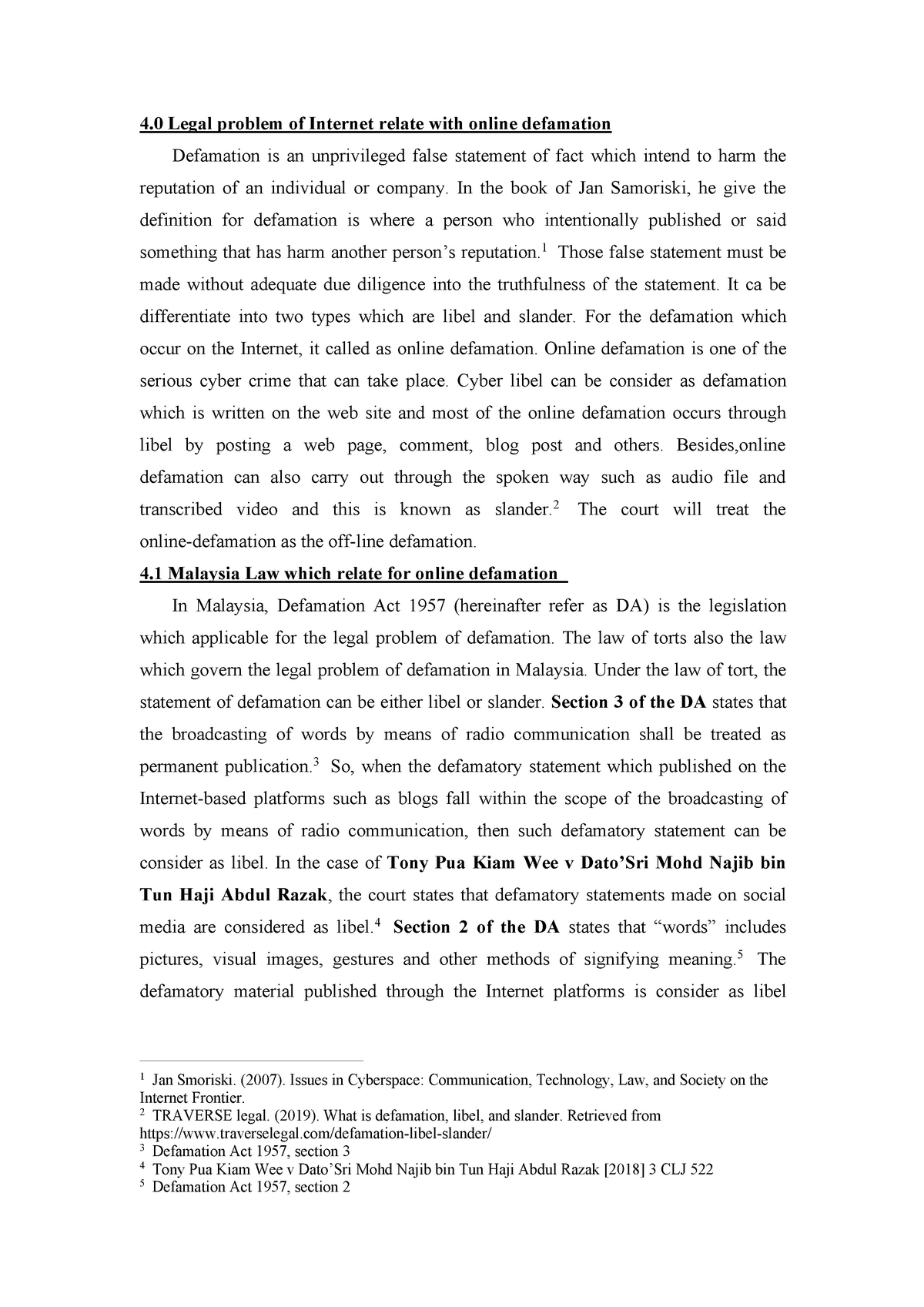Defamation of character can occur in many different contexts, including online forums and news websites. A defamatory post on the internet can be made by a third party, such as an anonymous poster or message board administrator. A court will need to balance the right to free speech of the poster with the potential harm caused by the statement. An internet defamation case is particularly complex because the statute of limitations for this type of case is extremely short.
The impact of a defamatory attack can be devastating and may have a lasting impact on one's life. Law understands the stress associated with such attacks. Defamatory attacks can lead to serious financial damage, ruined professional opportunities, and strained relationships, as well as physical symptoms. Because of the many negative aspects of defamatory attacks, it's easy to believe that victims have few options.
To protect one's reputation, a company should issue a statement from its attorney urging the Web site owner to take down the offending remarks. The company's response may also be drowned out in the results of the Google search, and company representatives may feel powerless to correct the record. A statement from legal counsel is usually enough to force the Web site owner to remove the offending statements. If the statement is published in a news article, it is best to contact the website or ISP directly.
Another important decision in the field of internet defamation law case that posed important questions regarding freedom of expression on the internet. Known on the Internet as "duelly41," sued Cannon in Crisp County Superior Court for defamatory messages on Yahoo! and other social media sites. Although Cannon did not seek a retraction ,he asked Yahoo! to remove the messages and seek general and punitive damages.
To win a slander case, a plaintiff must show that the false statement was published in a way that caused the defendant to suffer emotional distress. The defendant must have known of the victim's emotional distress and had the intent to inflict it. The plaintiff must also prove that the statement was published in a way that was likely to cause emotional distress. Using screenshots and downloading videos can also help with a slander case.
There are three types of internet defamation laws. First, libel. This is when someone makes a false statement about another person or business. It is a form of defamation and carries the same legal liability as libel. The second type is slander. This is when someone makes a false statement that affects their reputation. It can be a written statement, spoken word, or video.
Second, internet defamation laws are relatively new. This is because defamation over the internet occurs over anonymous communications, and they often pose new legal challenges. For example, establishing jurisdiction over an anonymous speaker may be difficult, and the Communications Decency Act shields websites from defamation liability. Lastly, internet defamation laws allow plaintiffs to recover damages for damage to their reputations through alternative legal theories.








